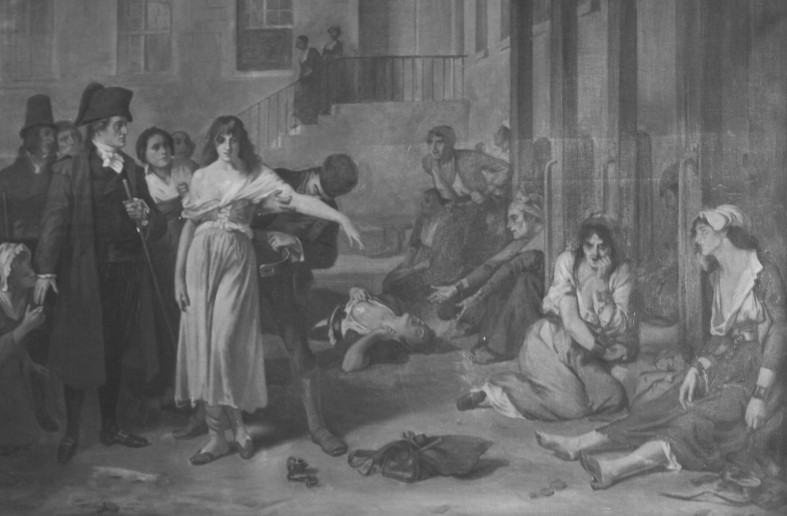For advocates against forced psychiatry July 14, Bastille Day, is a symbol of liberation.
Bastille Day, France’s national holiday, commemorates the day when revolutionaries freed prisoners from the Bastille, a government fortress. Two of the prisoners were locked up because of psychiatric disorders.
“It is a historic day of fighting against psychiatric oppression,” said Lauren Tenney, who organized a demonstration in Albany, N.Y. this Bastille Day to ban the use of electroshock therapy on children. Fifty people came out to support legislation for such a ban.
“We saw children as a first step towards a conversation about court-ordered and coerced shock,” said Tenney.
To those who saw the 1975 film “One Flew Over the Cuckoo’s Nest,” electroshock may seem like a thing of the past. But electroshock is still used to treat psychiatric disorders, especially amongst elderly patients and women.
“We don’t know how often it is used,” says Linda Andre, author of Doctors of Deception. “Numbers simply don’t exist.”

Andre’s book explores the history of electroshock and its dangers. “The horror never was the shock itself; it is the aftereffects, which patients are not informed of,” Andre said.
Electroshock is one of many treatments that a person may be forced to undergo by court order, and against which there is organized opposition.
“Court-ordered prescription treatment exists in 40 states and the District of Columbia,” said David Oaks, who underwent forced psychiatric drug treatment and solitary confinement while attending Harvard University in the 1970s. Oaks is now the director of MindFreedom International (MFI), a group that advocates patient choice in mental health treatment.
Several groups hoping to raise awareness about mental health began organizing on Bastille Day in 1981. Advocates now hold events and demonstrations around the world. “We’re even getting out to developing countries, where pharmaceutical companies are looking to expand,” Oaks said. And MFI’s last two Bastille Day demonstrations in Ghana have been their largest.
Studies have repeatedly found higher rates of recovery from psychiatric disorders in developing countries, according to Dr. Norman Sartorius, former Director of the Division of Mental Health of the World Health Organization. The reason for this difference has yet to be confirmed, but lower rates of prescription drug use and better familial support could explain part of the difference.
MFI suggests peer support and counseling as some of the most successful other treatment options. “If you’re homeless and justifiably upset, a doctor will probably offer you ten choices: drugs, drugs, drugs, and drugs,” Oaks said. “That isn’t a choice.”




